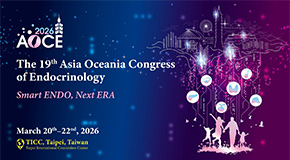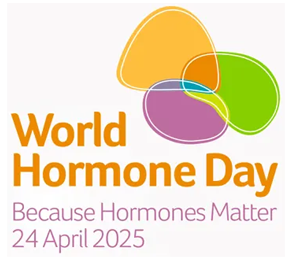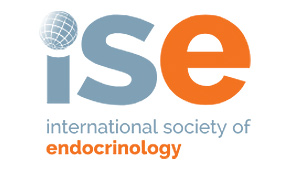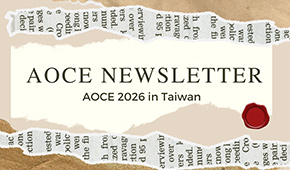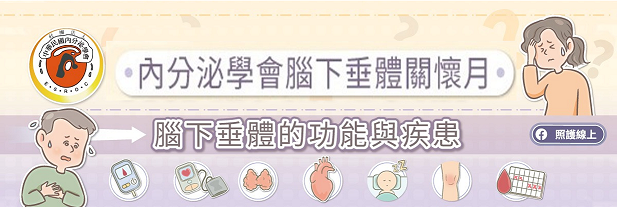The endocrine Society of ROC in Taiwan had a proud and illustrious history. The society can trace its origins to before the official date of incorporation on 29 March 1980 when the society first met at the Tri-service General Hospital (TSGH), Taiwan. Rather, the story of Endocrine gatherings kicked off years before in Taipei city when the late endocrine patriarchs- Prof. Shih-Hsien Tsai and Prof. Fang-Wu Chen from the National Taiwan University Hospital (NTUH), Prof. Ken-Nien Ching from Taipei Veterans General Hospital (TVGH) and Prof. Ping-Chi Chu and Prof. Han-Wen Huang from TSGH hosted the rotating meetings of their colleagues to share experiences and knowledge and to promote the advancement of the endocrine community in Taiwan.
Since 1989, the society’s rules have limited a president to serving for only six years in office. The president could be elected only to six years according to the Constitution of our society. In this regards, Prof. Fang Wu Chen was the first president of the society to serve nine years consecutively from 1980 through 1989; At the official inauguration of our society in 1980, we were honored to have in attendance, Prof. Sydney Ingbar from USA, Prof. Volpe from Canada, Prof. Pincera from Italy, Prof. Nicoloff from USA, Prof. Medeitros-Neto from Brazil and Prof. Nagataki from Japan, to offer best wishes upon the birth of our society. This meeting was notable as it was the first time an international academic exchange was implemented in Taiwan, which now occurs every March with a general assembly, annual scientific meeting with international exchange, industrial workshop and exhibition. To strengthen further endocrine communication across the nation, each autumn, either in September or October, there is a half day regional meeting. These two important meetings each year represent the landmark activities of the society.
In 1983, late Prof. Chen successfully organized a meeting -satellite symposium at NTUH following the international mineral meeting in Japan. The speakers included Prof. Hunter heath III from Mayo Clinic, Rochester, Minn, USA, Prof. Louis Avioli from Washington University at St. Louis, MO, USA, etc.
In 1988, the Society established a board examination to certify the qualification in endocrinology in Taiwan; the first 88 senior members of our society were exempted from sitting for the examination. Prof. Chen also set up an annual research award in his name until his death on 17 Feb 2014. He was the first president, and clearly set up a very solid foundation for our society to move forward.
The late Prof. Ken-Nien Ching served as the second President from 1989 through 1995; He was an exemplary model of the Chinese scholar who always maintains a low profile. During his tenure, he was assisted by a very active and capable secretary general (SG) –Prof. Hong Da Lin (HD Lin) who accomplished all tasks in an efficient and timely manner. President Ching would later described his appointment of HD Lin as the SG as the best day's work he ever did for the society.
Prof. Tien-Chin Chang was elected as the third president from 1995 through 1998. He had the reputation of a classical genius: one who appreciates on the basic principle and ignores the mundane. He made several meritorious contributions to the field of endocrinology, including its development of non-traditional activities with establishment of Acromegaly club, publication of handbook for thyroid cytology from his own experience which had substantial impact on the society. He is also remembered as a renowned painter in Taiwan.
Prof. Hong Da Lin, the right person holding the right job at the right time, was at the helm of the society from 1998 through 2001. During his prior six-year experience as the SG of the society, he developed very useful diplomatic skills that he successfully used to propose and win a bid for the 2002 Asian Oceanic Congress of Endocrinology (AOCE) in Taiwan. That was a significant milestone in our history and thanks to his efforts, this increase the credibility and visibility of our society in the international endocrine arena.
Prof. Ren Der Lin held the fifth presidency from 2001 through 2007. During his presidency, he successfully organized the 12th Asia-Oceanic Congress of Endocrinology (AOCE), which was held on 20-24 September 2002 at The Grand Hotel. He also organized a group of speakers attending the 13th AOCE in 2006 at Tehran, Iran. In addition, he is among a select few endocrinologists in Taiwan who exclusively studies thyroid cancer from basic to bedside. He also served as the national representative from Taiwan to Asia-Oceanic Thyroid Association (AOTA).
Prof. Ching Chung Chang took on the sixth president (2007-2013). He organized the International Hua-Xia Congress of Endocrinology in Taiwan on 4-9 December 2008, and responsible for bringing Dr. Karel Pacak from NIH, USA to give a plenary lecture on Pheochromocytoma during this meeting. This activity was arranged to serve all Chinese Endocrinologists all world over, to join together and promote camaraderie. The idea of the Hua-Xia Congress was campaigned during the1998 AOCE congress in Korea. The activity was organized every other year and selected sites in the rotating manner amongst Mainland China, Hong Kong and Taiwan.
Prof. Tjin Shing Jap was elected by the board of directors in March 2013 as the seventh president of the Society. He is the first president to give a speech in English. He envisioned and developed the English version of society’s website. These efforts opened access to the international community. In additions, he also organized the non-medical activity including presentation on international etiquettes, parliamentary procedures as well as publication of endocrine case study collection from his own experience which was bestowed as the book of the year in 2000. In addition, he is a pioneer studying the monogenic diseases in the fields of Endocrinology and Metabolism in Taiwan.
Technological advances over the last forty years in the field of endocrinology have led to great improvements in diagnosis and management of endocrine disorder. However, we also remember that many the sage insights and visions of our predecessors in endocrinology remain important principles of our practice today and will remain so to the team to our students as well as posterity of those are yet born.
This society’s brief history was summed up by President Tjin-Shing Jap, M.D. on 2 March 2014 during 35th endocrine annual meeting.
